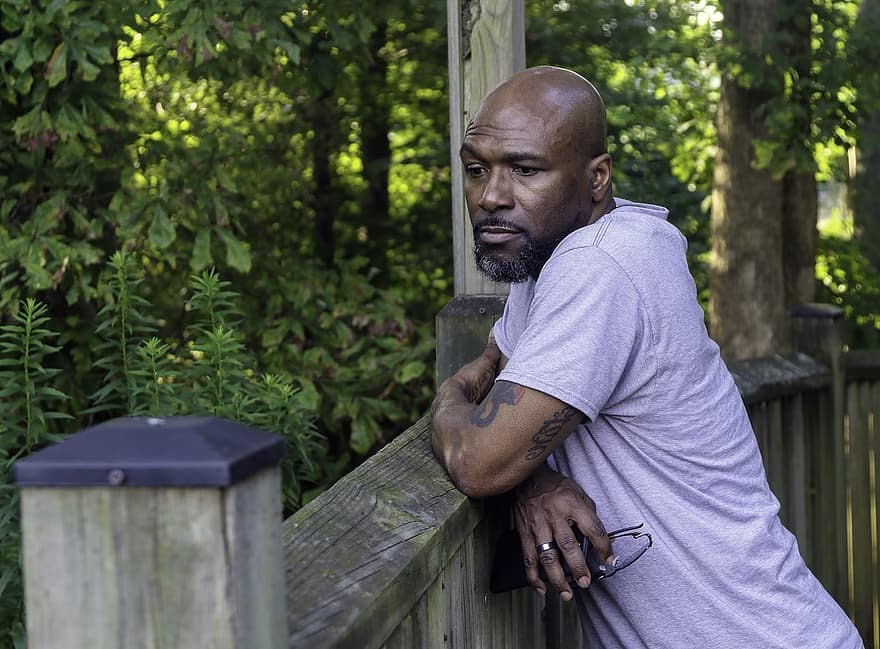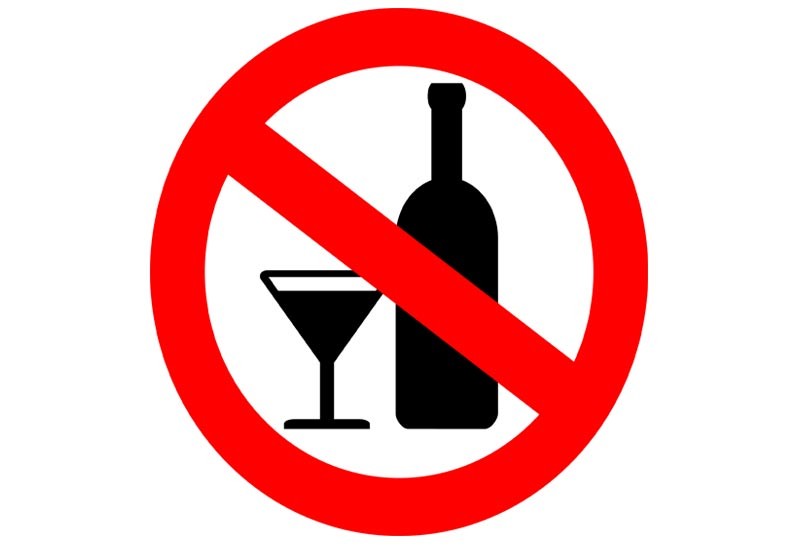Top 10 Tips on How to Cope With PTSD
Post-traumatic stress disorder (PTSD) is an anxiety disorder that stems from experiencing a traumatic event. PTSD is typified by symptoms that include reliving the experience, suffering insomnia, dealing with survivor’s guilt, and deliberately avoiding events or places that could trigger flashbacks.
Indeed, PTSD is commonly associated with military veterans. This is due to their high possibility of witnessing traumatic events, especially in combat situations.

An estimated 11-20% of military veterans who served in either the Enduring Freedom (OEF) or Operations Iraqi Freedom (OIF) operations experience PTSD every year.
Nonetheless, PTSD is not exclusive to military veterans; everyday people can experience PTSD if they experience harrowing events like physical assault, injury, or sexual abuse.
Statistics from the Anxiety and Depression Association of America (ADAA) show that 7.7 million American adults are living with PTSD today.
PTSD is not a death sentence, however. There are viable ways to cope with PTSD and restore the quality of your life. These strategies can help alleviate the frequency of your symptoms ( flashbacks, for example) and even reduce the enormity of anxiety you feel.
Let’s explore some proven tips on how to cope with PTSD.
1. You can practice mindful meditation.
A large percentage of mental disorders can be alleviated with meditation. Such mindfulness-related therapies contribute to relaxing the patient. This is particularly helpful in cutting back on instances of survivor’s guilt and avoidance.
There are several variants of meditation-based therapies effective in coping with PTSD, but chief among them is mindfulness-based stress reduction (MBSR).
MBSR is an evidence-based medication therapy with impressive potency in managing stress and agitation. It can relieve several mental disorders like anxiety, depression, and PTSD. MBSR is also applied in treating conditions like diabetes mellitus cancer and even skin diseases.
Professor Jon Kabat-Zinn created this therapy in the 1970s at the University of Massachusetts Medical Center. In MBSR therapy, the PTSD patient is trained to concentrate their energy on shutting off intrusive thoughts and managing their breathing patterns to ultimately ramp up mindfulness and awareness.

The PTSD patient learns to focus less on the traumatic event and the future. They recognize their thoughts during this meditative period but don’t respond to or judge them.
On average, MBSR therapy spans two months. Aside from mindful meditation, MBSR also incorporates behavioral patterning, thought formulation, and yoga.
A study carried out on American veterans who served in Iraq discovered alleviation in their PTSD symptoms after two months of sustained MBSR therapy.
2. Practice progressive muscle relaxation.
Progressive muscle relaxation is another deep relaxation-based therapy that is efficient in coping with PTSD, essentially focusing on achieving mental calm.
Introduced far back in the 1930s by Edmund Jacobson, progressive muscle relaxation involves tensing a muscle group and relaxing it to release the tension.
Research has shown that progressive muscle relaxation therapy has improved depression and the quality of sleep in PTSD patients.

This method’s progressive alternating muscle tightening and relaxation phases can span 10-20 minutes in a day. You can practice progressive relaxation while lying or sitting down, with your eyes closed, taking deep and slow breaths.
For best results, progressive muscle relaxation should be practiced in isolated areas where you wouldn’t be distracted.
3. Ensure you are eating a healthy diet.
One powerful hack on how to cope with PTSD is ensuring you eat a healthy and nourishing diet. A good diet does more than just keeping you pretty; crucial nutrients like the omega-3 fatty acid contained in foods like fish, walnuts, and flaxseed play a pivotal role in promoting brain health.

Omega-3 fatty acids are powerful in combating depression and other mental disorders like anxiety and chronic lethargy. This explains why omega-3 supplements are increasingly included in antidepressant drugs.
A healthy intake of fruits and veggies also improves your mental health. An Australian study discovered that a healthy consumption of veggies and fruits reduced psychological distress in adults.

Also, reduce your intake of refined starch, processed foods, red meat, sugars, and fried food, while increasing your intake of foods that are rich in dietary fiber and that can improve your gut health.
Healthy dieting – eating nutritious and balanced food – can improve conditions like mitochondrial dysfunction, brain chemical irregularities, and oxidative stress. These three miscreants are major stakeholders in the occurrence of PTSD.
4. You can turn to art therapy.
It’s not the commonest of remedies, but art therapy is an effective PTSD treatment solution. Many mental health experts are recommending it.
Art therapy works by training the patient to bring out their emotions, leveraging art to cope with traumatic memories. This art includes creative engagement like drawing, sculpting, and painting.
This allows the patient’s brain to process the trauma less provocatively. Art therapy gives the patient a subtler outlet for expression, neutralizing the horror from the event.
5. Have a healthy exercise regimen.
Exercise is essential to your mental health, especially in countering anxiety and depression. Exercise intervention is frequently recommended for coping with PTSD.

A unique 2005 study carried out on PTSD patients saw the participants undergoing an aerobic exercise program over three months. By the end of the program, there was a significant improvement in the participants’ anxiety and depression levels.
Exercises like yoga, running, tai-chi, hiking, and surfing are particularly useful in coping with PTSD. Researchers working at Anglia Ruskin University in Cambridge, UK, discovered that surfing has remarkable coping benefits for military veterans struggling with PTSD.
Additionally, running in particular improves your mood. When you run, your brain emits more neurotransmitters like norepinephrine and serotonin.
This increases the feel-good sensation derivable from this exercise. Overall, running helps improve your quality of sleep and reduce stress levels, ultimately reducing depression.
6. Don’t hesitate to leverage social support groups.
One of the most effective strategies on how to cope with PTSD is maximizing the emotional relief of support groups. While PTSD patients tend to withdraw into themselves, it is imperative to speak up and reach out for help when it’s needed. Often, the battle against PTSD is better won communally.
PTSD is not exclusive to you, and there is nothing shameful about the disorder. You may not know it, but many genuine support groups are scattered across the internet and even near you physically.
Here, you get to commune with individuals who have first-hand experiences of PTSD and who have overcome it or are each in one of several PTSD recovery stages.

This dedicated community, specifically aligned to your condition, can help you combat PTSD better.
These communities are determined to help you and don’t hold back on sharing their uplifting stories. This way, you are better equipped to manage the day-to-day mental challenges of PTSD, especially when it comes to managing eruptive emotions like shame, anger, guilt, and fear.
7. Find a loved one to confide in.
Even more than these support groups, having an individual you share an emotionally fortified relationship with can help you in your battle with PTSD.
Open up about your condition to this trusted individual. This individual can also collaborate with you in your PTSD recovery journey, being your accountability partner and ensuring you do the things (like diet and exercise) you can and should do to recover.
8. Prioritize good sleep.
Yes, you can sleep your way to recovery from PTSD. Sounds exciting, right? Adequate sleep is as good for your physical health as for your mental health. Specifically, quality sleep is effective in combating trauma.
Sleep is so critical to mental health that research has revealed that just enjoying a period of nourishing sleep within 24 hours of experiencing trauma can reduce the possibility of developing PTSD from that traumatic event.
Sleep enhances your mental capacity to process memories. On the other hand, sleep deprivation can be catastrophic, especially considering its negative impacts like increased irritability, mood swings, anger, and gloominess.
Strive to enjoy quality nighttime rest daily. For the best restorative results, you should sleep anywhere between 7-9 hours every night. A bedtime ritual can help ease you into sleep if needed.
This could be as simple as reading a book before sleeping, performing moderate-intensity yoga exercises (like reclining bound angle and child’s pose) just before bedtime, or dimming your bedroom light.
9. Turn to pets.
Can those four-legged creatures really help pull you out of PTSD? Yes, they can! Over the years, pets have proven useful in helping patients deal better with the typical disruptive symptoms associated with psychiatric disorders including PTSD.
A pet can be trained to detect symptoms at the earliest formation stage of PTSD. As a matter of fact, these specialized pets could be further trained to interrupt the development of such symptoms or prevent them altogether.
Studies have repeatedly pointed to the therapeutic effect of trained pets for PTSD patients, mainly how these animals can help them cope with triggers and manage PTSD symptoms like anxiety, nightmares, and depression.
Take, for instance, this insightful study on animal-assisted therapy that reveals that spending just as little as seven days with a specialized therapy dog can improve a patient’s PTSD symptoms by at least 80%.
10. Never look to alcohol as a solution.
A common – and catastrophic – mistake many PTSD patients make is looking for relief at the bottom of a bottle. Such individuals attempt to use alcohol to distract themselves from PTSD, especially as a way to dispel the memories and stress.

When you use alcohol, your brain may emit more dopamine, making you feel good in the interim. But upon returning to sobriety, the trauma rushes in again, causing you to feel even more depressed and aggressive and ultimately making you withdraw more into yourself.
It even gets worse. An immodest consumption will deteriorate your sleep quality – something crucial to achieving sustainable recovery from PTSD. Additionally, there is the risk of getting addicted to alcohol when using it as a distraction from PTSD.
The truth is you can’t run away from your PTSD. You have to boldly confront and overcome it. One proven way to do this is by changing your perception about this disorder and making deliberate steps to beat PTSD. This is what our culturally-sensitive, well-trained coaches and counselors will help you to do.
They will partner with you in your journey through overcoming PTSD, recommending potent, alternative solutions adapted to your specific needs. DO SOMETHING. Reach out today and let us help you take back your beautiful life!
